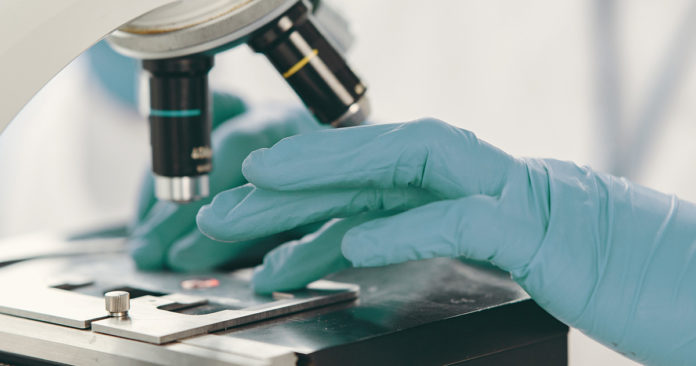The coronavirus pandemic has aggravated the situation of millions of people living with AIDS and has seriously jeopardised the achievement of the UN 2030 Agenda’s target of ending AIDS as a public health threat by 2030. At the same time, however, the COVID-19 crisis can provide an opportunity for the paradigm shift needed to overcome the HIV epidemic.
Forty years later, the AIDS epidemic remains a global crisis. According to the Joint United Nations Programme on HIV/AIDS (UNAIDS), since its outbreak in 1981, more than 79 million people have been infected and some 36 million have died from AIDS-related causes. More than 37.7 million people are living with HIV today, being most of them in impoverished countries. In 2019 alone, 1.7 million people contracted HIV and nearly 700,000 died of AIDS-related causes. These figures may be significantly higher, as it is estimated that around 15-20 % of people with HIV do not know that they live with it.
Today, we know that access to HIV health care and antiretroviral treatments significantly reduces the risk of transmission and provides people with HIV with high life expectancy and quality of life. However, limited access to health services and treatment costs mean that nearly 50 % of the population living with HIV does not have access to life-saving treatments that can also stop the epidemic.
HIV/AIDS affects women in particular today
From a gender perspective, although the male/female ratio is 4 to 1, HIV/AIDS affects women in particular today. It is estimated that around 5,000 young women between 15 and 24 years of age are infected with HIV every week. Unequal access to education and sexual health and reproductive rights services, as well as sexual and gender-based violence, increases the vulnerability of women and girls to HIV. Thus, AIDS-related diseases are one of the leading causes of death among women of reproductive age globally. In sub-Saharan Africa, six out of seven new infections among adolescents aged 15-19 affect girls and young women are twice as likely to live with HIV as men.
This dramatic reality is intimately related to the gender inequality and multiple violence experienced by women and girls around the world. The figures are frightening: more than a third of women worldwide have experienced physical or sexual violence from their partners or sexual violence outside their partner at some point in their lives, thus, increasing 1.5 times the likelihood of HIV infection. Globally, sex workers are approximately 14 times more likely to become infected.
This situation is being aggravated by the COVID-19 pandemic, which is having dire consequences for people living with HIV. These people suffer from more severe conditions and are more likely to die from COVID-19. Something as fundamental as HIV diagnosis and prevention has retreated for the first time in the world as a result of COVID-19. During the first year of the pandemic, 40 countries experienced a decline in HIV testing, which is vital to prevent the virus from progressing. The closure of schools and hospitals also led to a reduction in prevention programmes, which had an impact on prevention programmes reaching 11 per cent fewer people.
The impact of COVID-19 and global HIV vaccination has a multiplier in common: inequality.
The prolongation of the COVID-19 pandemic is aggravating and prolonging the inequalities that the HIV epidemic has caused for so long. By mid-2021, most people living with HIV did not have access to COVID-19 vaccines. Globally, high-income countries already have more than 70 per cent of their fully vaccinated population, while in Africa this percentage reaches only 11 per cent.
We must not forget that the inequality in COVID-19 vaccination globally is the picture of our failure. When income conditions the level of vaccination it becomes clear that the vaccine is not a universal good and that we have failed to meet our commitments.
What should the international community and the European Union do against COVID-19 and HIV?
To end HIV by 2030, as set out in the UN’s goals, the international community, including the European Union, must take urgent action. In this respect, COVID-19 can be an opportunity. On the one hand, in can be an opportunity because of the potential that RNA-messenger vaccine technology could have in the face of HIV. On the other hand, it can help making the paradigm shift in addressing health as a global issue that challenges us all.
Our response to COVID-19 should include and consider lessons learned from the fight against HIV. Protecting human rights, involving local communities in the response, equitably allocating limited resources and new tools to leave no one behind, and combating stigma and discrimination and gender barriers in health are some of them.
COVID-19 offers us an opportunity to learn from our mistakes, mobilise globally and invest to really end inequalities that, in many cases, prolong and intensify situations such as the COVID-19 pandemic or the AIDS epidemic. The challenge is overwhelming: there is no time to waste.


